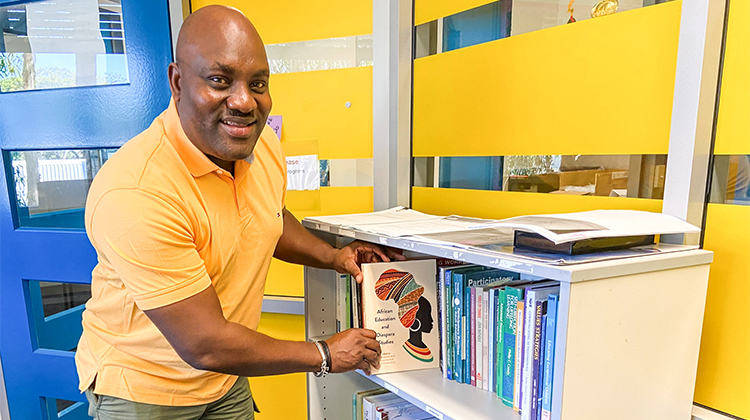Australian Education System Failing to Support Critical Reasoning in Children

A narrow focus on standardised curriculum in education has reduced creative and critical reasoning skills in Australian students.
This lack of critical reasoning has contributed to the polarisation of moral issues and politics. It has also created a social media environment that reinforces ideas and beliefs, rather than challenging them through meaningful debate, according to CDU Lecturer in Education Dr Stephen Bolaji.
There is some critical thinking being taught in schools now but there is scope for more. Currently, the subjects Civics and Citizenship for the middle school years and Legal Studies and Philosophy in the senior years could be rejigged to include more instruction on critical thinking processes. However, they remain electives in the senior years.
“Critical thinking which is an aspect of philosophy can be incorporated into the civic education curriculum for all middle schoolers. This is where the adolescent stage starts. It is critical for the teenagers as a subject to seek a deeper meaning to issues or questions. An act of reasoning with deep reflection skills. It would help to build resilience and prevent the suicidal tendencies prevalent in our society.
“Middle school subjects are compulsory for students in Year 7–9. There are huge benefits for students in this cohort, especially in dealing with issues of life in this age of new normal post pandemic and its manifestations that are confronting us on a daily basis,” Dr Bolaji said.
The curriculum over the last decade had not addressed the Philosophy of Education, which he says was the basis of critical thought and reasoning.
“The critical thinking tools are a solid foundation to learn and should be a requirement in pre-service teacher training,” Dr Bolaji said, “critical thinking skills, like all other skills, need development.”
“When young people interact with the world around them, they don’t have the critical reasoning skills to make up or evaluate a reasonable argument, so they just accept or reject ideas based on the face value of the information they are presented,” Dr Bolaji said.
“If you look at somewhere like New Zealand and the United Kingdom, they have philosophy principles deeply embedded in their early education systems,” he said.
“It’s not the teacher’s fault here in Australia, the Philosophy of Education is just missing from the national curriculum.”
“New Zealand and UK have a strong focus for philosophy/ Critical Thinking in their teacher education program. My research in the area of educational aspiration of African youths across these countries attested to the fact that young and middle schoolers now have the skills for critical analysis of issues, questioning and seeking a deeper meaning to issues of life, 25 out of 30 migrant parent participants interviewed in UK affirmed this new trend of curiosity of knowing in their kids.
“To start with, returning philosophy and critical thinking to teacher education in Australia would do our pre-service teachers in training a lot of good in coping with the nuances of dealing with adolescence in a classroom setting.”
Dr Bolaji laid out his argument in the first chapter of the new book, African Education and Diaspora Studies, which collects research and critiques education patterns in Australia, Africa, and Asia.
The chapter, Where is Philosophy of Education in the Teacher Education Program in Australia?, was a perspective piece drawn from his 25 years of experience in education training in Australia and Africa.
Dr Bolaji said the book came together from the weekly discussions and debates that a group of international education experts had to discuss their research.
“Exercises in critical thought and reasons led to the book’s development,” he said.
“What we discussed is that most education systems in developing and developed countries faced challenges, and these education challenges have impacted society.”
The book, African Education and Diaspora Studies, Is available from CDU Bookshop.